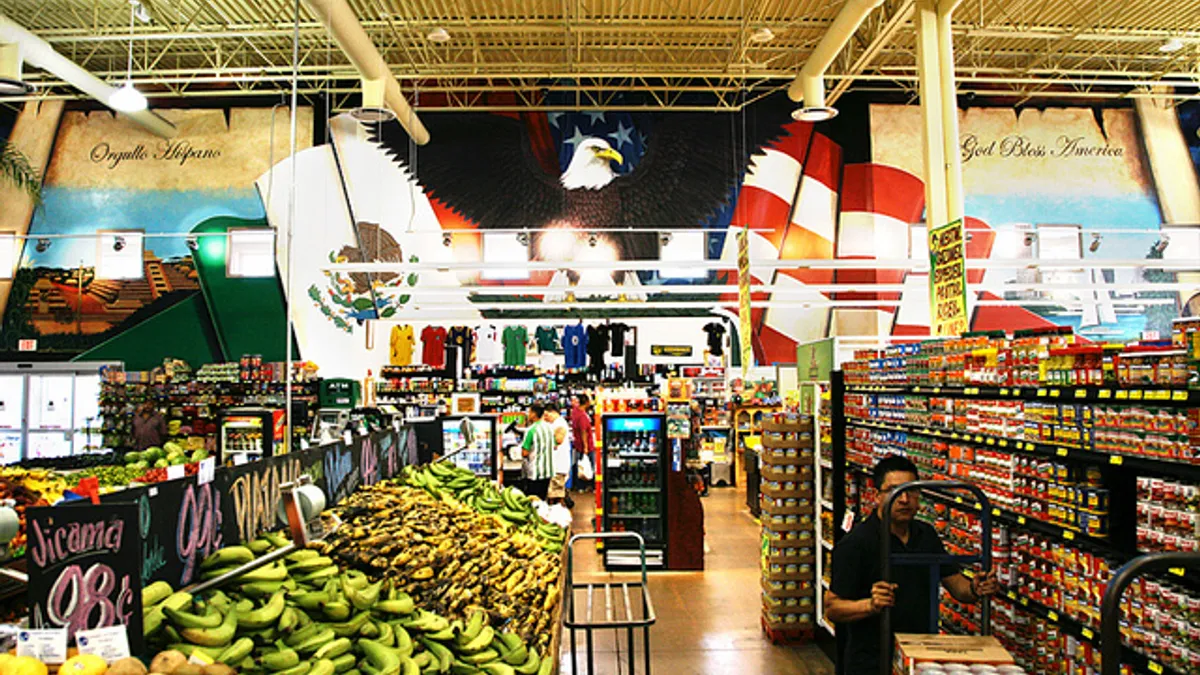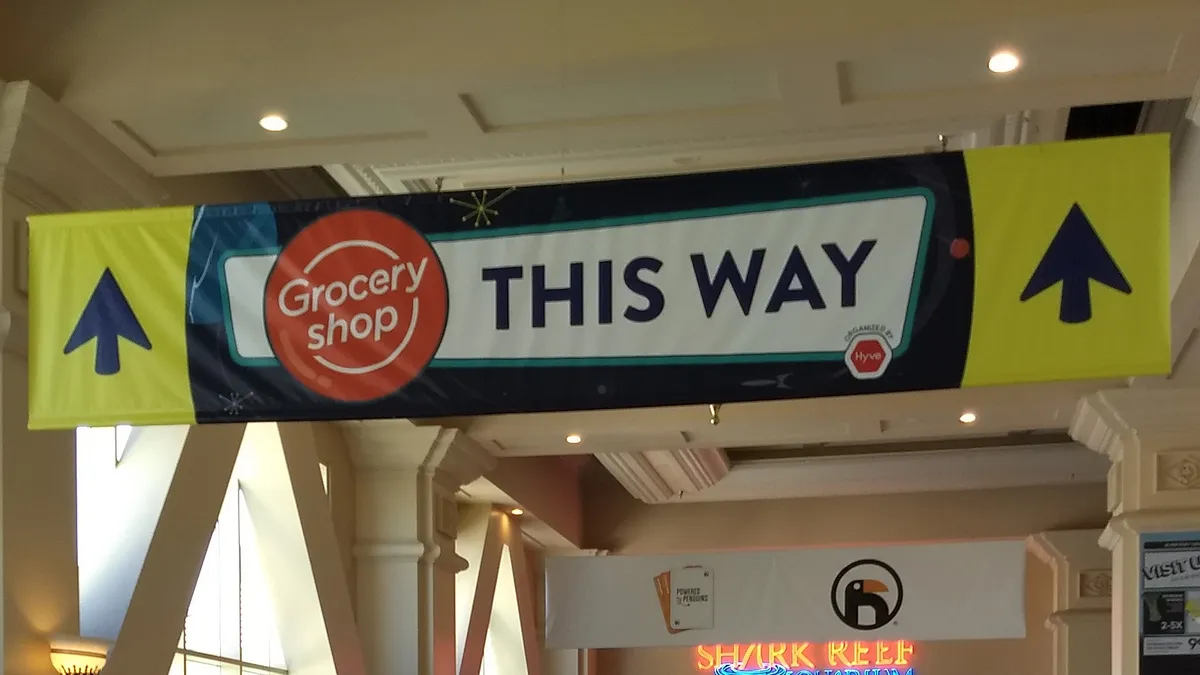Dive Brief:
- According to Bloomberg, Supervalu's low stock price coupled with high earnings potential once price deflation eases make it an attractive acquisition for competing wholesalers.
- Following the sale of its Sav-A-Lot stores and the acquisition of new wholesale customers, Supervalu stands to grow its fiscal year 2018 revenue by $1 billion, or 10%.
- Top candidates to purchase the retailer-wholesaler, according to Bloomberg, include SpartanNash Co. and United Natural Foods. C&S Wholesale Grocers, the largest wholesaler in the U.S., is also a contender.
Dive Insight:
According to IBISWorld, wholesalers have enjoyed robust sales during the past five years due to price increases in a few key categories. Price deflation, however, has put a crimp in revenues lately. In the next several years, wholesales can expect slower sales as oil prices rise and as larger retailers bypass distributors to cut costs.
In this environment, the most effective path to growth is often through consolidation. Similar to grocery chains, wholesalers also have merging as they seek new markets and higher margins.
One of the most attractive buy options right now, Supervalu, has had a rough go during the past 12 months as it’s lost customers and divested its Save-A Lot stores to private equity firm Onex. As Bloomberg noted, the company’s stock has fallen 30% in that time. But Supervalu’s divestment along with some key management changes have allowed it to re-focus its efforts on wholesaling, and in recent months the company has picked up some lucrative new contracts. That new growth coupled with Supervalu’s still-low stock price make it ripe for sale.
Bloomberg points to SpartanNash and United Natural Foods Inc. as possible buyers. Both have recently made acquisitions, but indicate they’d be open to doing the right deal. SpartanNash seems the more likely of the two considering the similarities in product offerings, and the fact that Supervalu would allow the Michigan-based wholesaler to move into the West Coast market. C&S Wholesale grocers also could swoop in, as it nearly did several years ago when Supervalu was exploring a sale. The two wholesalers combined would create the largest grocery distribution company, with more than 8,000 stores in their collective network.
One downside to a Supervalu acquisition is the company’s debt at around $2.5 billion. To reduce it, Supervalu could consider divesting more of its retail operations.
In addition to gaining new markets, wholesalers also have been acquiring specialty distributors, particularly those in fresh and prepared foods, to beef up their capabilities in high-growth categories. It all adds up to a fast-moving, quickly shrinking industry that’s taking shape around a few remainining competitors.










